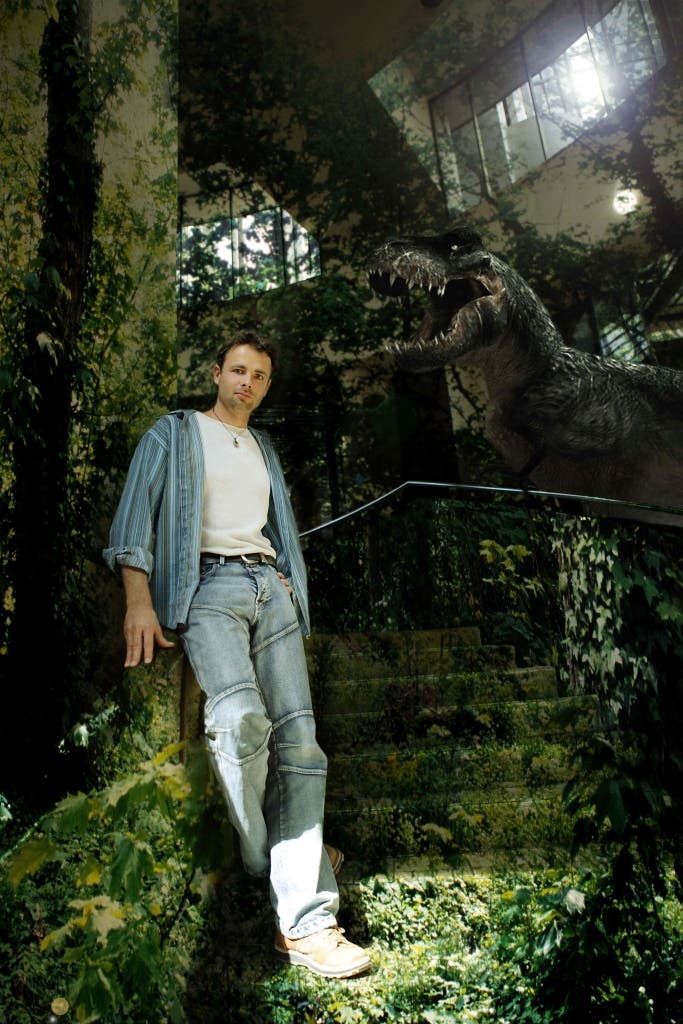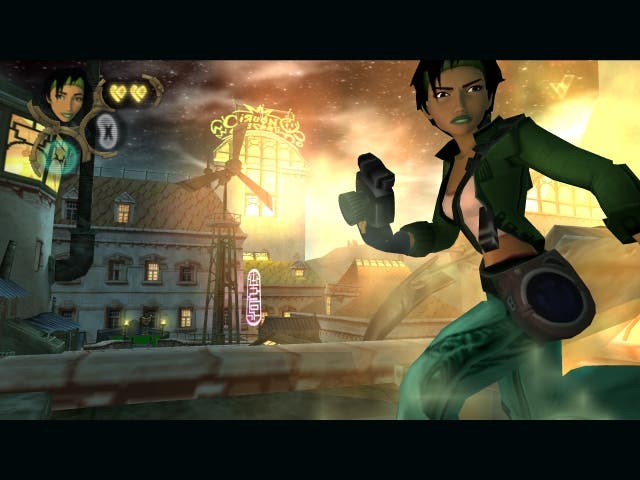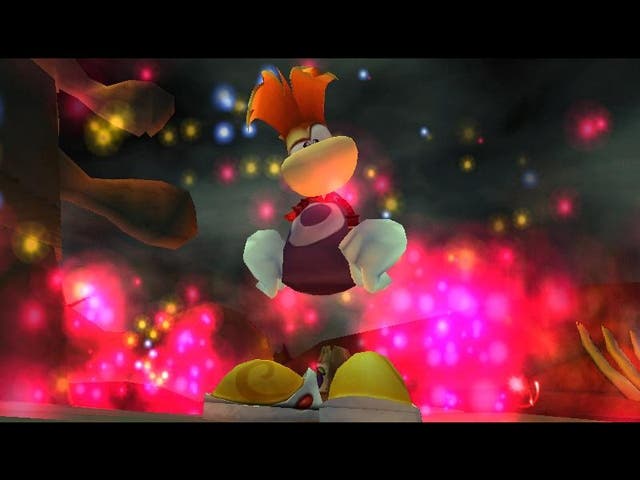King Kong's Michel Ancel
On making the game, film adaptations and other topics.
It says "Peter Jackson's" on the front of the box, but for a lot of gamers it was the involvement of Michel Ancel that gave Ubisoft's King Kong film adaptation its credibility. Ancel's Rayman games are sometimes derided, but with the release of his original action-adventure title Beyond Good & Evil, a game often pegged as a "grown-up Zelda" (arguably a comparison that's slightly unfair to both camps), interest in the French developer increased dramatically.
Speaking to us just before Christmas, Ancel still didn't have a firm response to fans' calls for a BG&E sequel ("I'd love to, and it's always in my mind,") but he did take the time to answer some of our questions about the process of making King Kong, film adaptations in general, the next generation of game consoles, and the artistic merits of games relative to films.
Ann obviously. She's keeping her blood cold, which is not the case of Kong and the other men. She's the one who will change Kong's mind. At the end of the game and the movie, Carl Denham says, "it was beauty killed the beast". In some way, she's the one who changes everything.
Peter was really absorbed in the movie but he gave us some time at the beginning of the production. These early meetings helped us a lot to take the big decisions like playing Kong, being in first-person, using the environment, removing the HUD. In fact, during these meetings, Peter opened the door of Skull Island and gave us the freedom to do what we wanted.

He is a player and at the same time he is a creator with a good technical and artistic sense of analysis. If he takes the time, he'll surely be able to understand and to work more closely on a game.
No, it was a total secret. When I saw the movie, I discovered some incredible points in common with the game, even if we actually created some sequences without having all the final details.
It would be presumptuous to say that our game is an example of a good adaptation. We took some decisions and some risks and sometimes it could have been dangerous. I think that this is the key to achieve successful adaptations. When you are creating a game, some parts of the development can be pure research and others are based on more classical ideas. Because of the time and budget constraints with game licenses, it's hard to take risks and innovate. For King Kong, being innovative required a great effort from the team; indeed it was a challenge to finish on time without cutting some levels and ideas. On the other hand, some very good licenses are turned into very basic gameplay that don't really correspond to the movie purpose, so the right solution is a good deal of innovation and stable ideas.
It's a whole new approach and we are very proud of it but it can be perfected. The next step would be to work directly in the same place as the movie team in order to increase the efficiency of the information exchange.
Of course, the ideal situation would be to take more time in order to innovate. A game based on a movie, a book, a sport - anything - can be interesting because it gives a frame to create within. When you're working on a karting game, you are dealing with sensations that you can analyse from reality and your job is to make them fun to play. When it's based on a story, that's the same; the emotions of the movie can drive the way you will take your decisions in terms of gameplay.
Artistically, not that much; sometimes restrictions are a way to force us to think differently.
No of course, when you have full control, you set your own boundaries and the creation can be totally different.
I've been working on the PS2 version. The Xbox and GameCube versions are based on this one and have been developed in Montpellier, but of course other studios were involved in order to be able to develop on a wide range of platforms.
Why not?

Obviously, Ann will be more popular than Jade, she's the friend of one of the most famous guys in the world, Kong, while Jade will only bring an unknown pig with her! That's the eternal question of bizarre innovation vs. strong references.
I'd love to, and it's always in my mind. One day maybe!
Why do people eat in McDonald's when they could eat better food for the same price? First, they don't know that there is this wonderful little restaurant close to there home and second, they are not really searching for it. If a product is unknown, even if it's a good product, it's a dead product. Incredible marketing and incredible reviews can't be enough to create a franchise in one year. If a new game is really good, maybe the number two will increase the popularity and then the number three will make huge sales. If you look at most of the franchises that are not based on a license, you'll realise that they needed time to become huge.
Rayman's world is really refreshing, so why not!
To me, the right direction is interface and gameplay innovations. It will bring new players to the world of games, far more than incredible audio and visuals alone. However, together, all these elements will lead to an enhanced immersion.

The incredible audio and visual technologies will create the big short term effect but the long term pleasure will surely come from new interfaces, multiplayer and good concepts that will make the best use of these features.
If they are iterations that increase the quality of the experience, that's perfect but if they are just a way to make money with no evolution, then it could be dangerous for the market.
People think that games are controlled by players so they can't be artistically directed. My feeling is that a game creator is building a situation in which the player is experiencing emotions. The creation of this "emotional situation" is very complex. You know, there is a language in game design and a lot of people who don't know this language don't really understand what makes a good or a bad game. This language is based on very primal ingredients like managing the frustration and the feeling of power, dealing with fear and confidence. The subtle balance of hundreds of these ingredients is controlled by the game creators using a lot of tools like visuals, audio, pacing and the most important, the game rules. When we are designing a game, we make choices that influence the final result. For some games, these choices could be compared to art, just because their combination is creating a high level of emotion.



